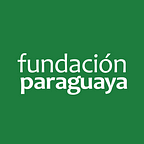Noble Cause Corrupción, microfinance disease
Larry Reed, Senior Fellow for Economic Inclusion at RESULTS and Genzo Yamamoto, Director of Knowledge Management at Opportunity International, pointed out the keys to prevent one of the main ills that can affect organizations that provide financial services to people in a situation of poverty, small businesses or low-income clients.
The world of social companies and non-profit organizations is supported by the trust of third parties in the social, political, cultural and economic aspects. This external pressure on the goals, and the impact generated by social initiatives, can often lead to the temptation of maximizing the impact, or hide under the table some numbers that are less pleasant.
In a comprehensive way, this reality affects all organizations and social enterprises that are not transparent with their impact data, the so-called disease of Noble Cause Corruption, which generates a not-so-innocent chain of deceptions that undermine the benefits of the causes. This was the first dialogue of the second morning at the Cerrito Forum 2019.
With some 200 participants and guests from several countries, such as India, the United States, Uruguay and Canada, the event not only showed off its best deployments in logistics and innovative dialogue dynamics, but the activity was installed as a learning opportunity to be able to share experiences, self-improvement examples and empowerment of different initiatives for the elimination of poverty, this year’s central theme, using innovation and technology.
The Noble Cause Corruption session, led by Larry Reed, Senior Fellow for Economic Inclusion at RESULTS, a defense group that seeks to create laws and policies that contribute to the elimination of extreme poverty around the world; and Genzo Yamamoto, Director of Knowledge Management at Opportunity International, an organization that is helping to put an end to extreme poverty, promoting the training of people to get out of poverty so that they are able to provide their children with a quality education, as a sustainable way to transform their lives, families and communities.
With an interaction dynamics, Larry and Genzo started out by mentioning the Theranos case, the company of Elizabeth Holmes, which by 2015 had the best growth prospects and in less than a year, it turned into cosmic dust.
What was the cause for such a prominent social enterprise to shatter in just months? The answer is simple: Noble Cause Corruption. Being a student and working in the labs of the Singaporean Genome Institute, she invented a portable patch that measured variables in the patient’s blood to see if the therapies were having the expected effect and; thus, adjust the dose as needed. Then, this idea evolved, creating a more advanced box-shaped device, to measure blood values in real time, with only a small amount of blood, without the need to use syringes and go through that annoying moment.
The value of her work increased from $ 1 million to $ 9 million. It caught the attention of organizations that contributed to her work, but after several journalistic publications, that denounced errors of analysis and that the works that came out of the device were not exact, she was sued by hundreds and hundreds of patients, who finally were misdiagnosed.
She remained firm that her invention helped thousands of people to instantly detect anomalies, diseases and that over time, her device would improve: a clear case of Noble Cause Corruption. But how to avoid falling into this?
The experts gave five ways, from the organizations, to avoid falling into this bad practice: “Social benefits must be measured for their market value. It is our responsibility to guide clients to the benefits that society will receive,”said Larry Reed.
Whereas Genzo Yamamoto said that, you should not measure what you want or what you expect to happen. “Research is important and helps in different ways, and for that, we have to make strategies,” he added.
“As a second hint, we must invite experts to evaluate the evidence, in the Theranos case, such a thing did not happen,” Reed said. Then, they followed with the other steps or hints to take into account: we must compare the performance with the mission; cultivate integrity and transparency and; finally, locate industry experts, such as people who lived in poverty and came out of it, helping to empower the community and make it stronger.
# Cerrito2019: An event of Fundación Paraguaya, in partnership with the Social Innovation Directorate of the Development Bank of Latin America (CAF), the International Development Research Center (IDRC), the Peery Foundation and IMAGO Global.
